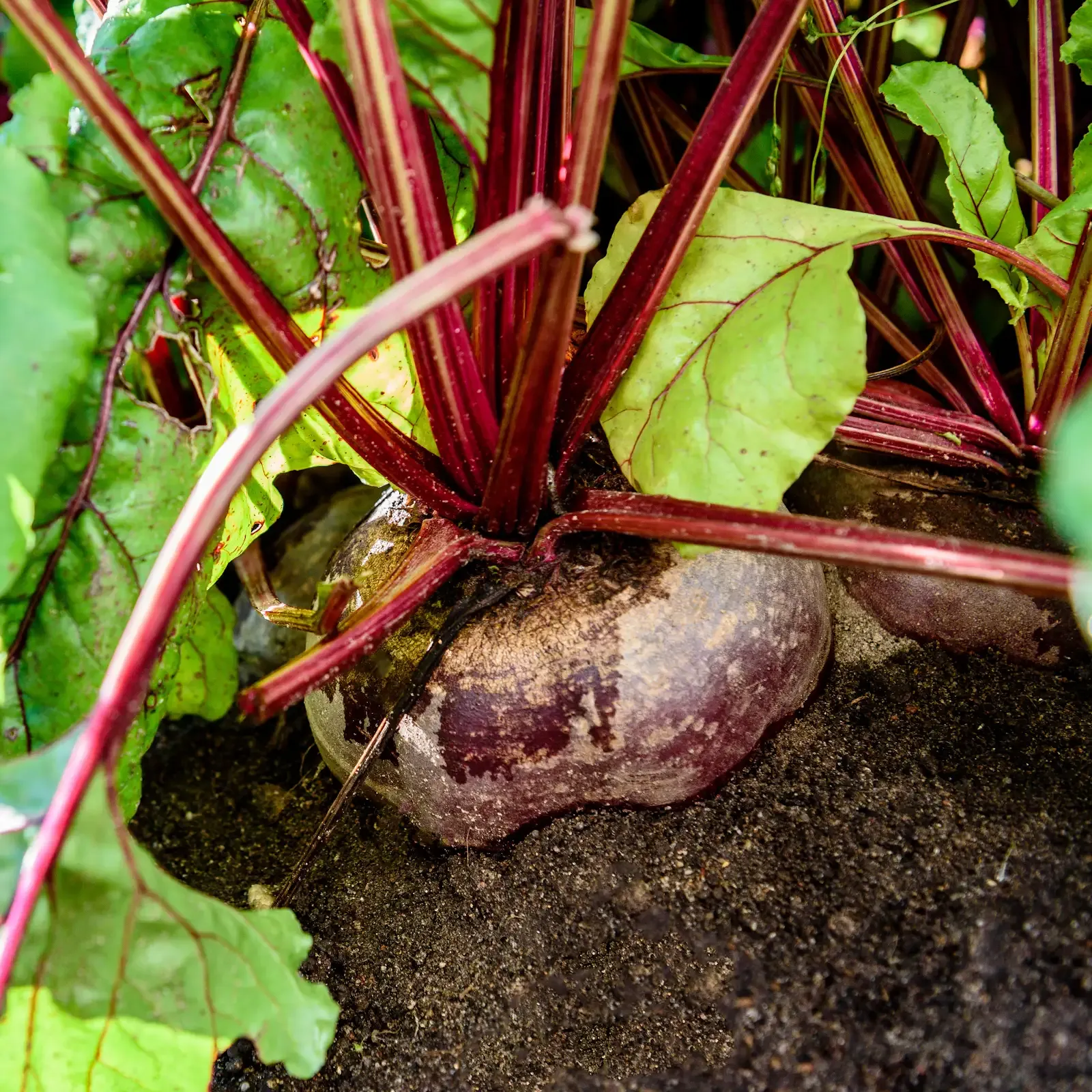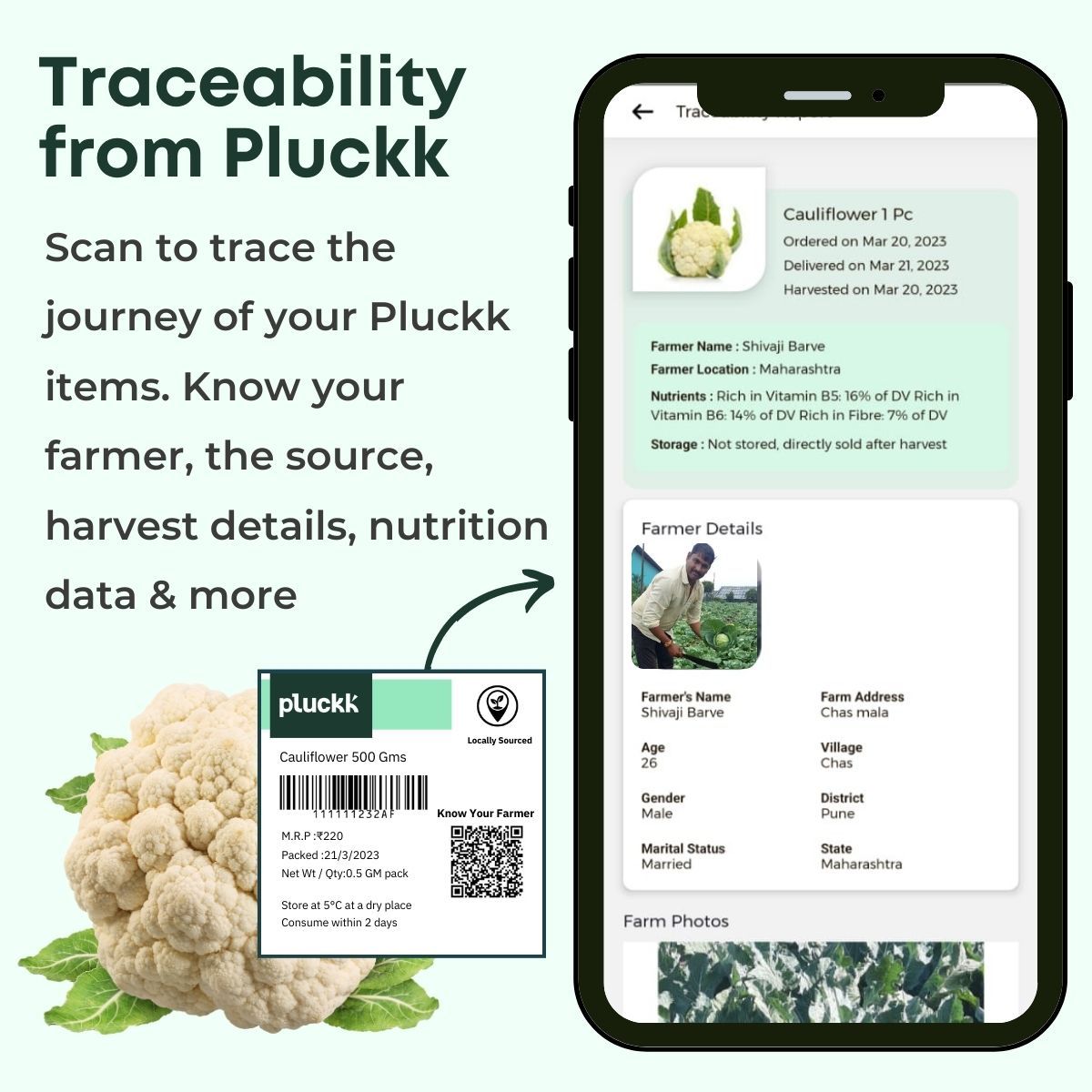
For a better and faster shopping experience, download app
Unkown
Description
Beetroots, or simply beets, are root vegetables that have a globular shape with tapered ends. Different varieties may exhibit elongated or cylindrical characteristics. They have deep red or purple outer skin and dense, juicy flesh inside, which is typically sweet and earthy in flavor. Beets are, on average, 50 to 70 mm in size. Rich in nitrates, antioxidants, and essential nutrients, these colorful root vegetables are perfect for roasting, juicing, or adding to salads and smoothies. Low in calories but high in beneficial compounds, beetroots support heart health, enhance athletic performance, and may help reduce inflammation. Add these striking vegetables to your meals for a delicious boost of color and nutrition. Order now and experience the goodness of our carefully sourced beetroots – nature's own performance enhancer!
Physical Characteristics
Round to oval root vegetable typically 50 to 70 mm in size. It has a smooth, firm exterior with deep purplish-red skin (though golden and white varieties exist). Inside, the flesh is uniformly colored – usually deep crimson – with concentric rings visible when sliced. The texture is dense and crisp when raw, becoming tender when cooked, with a distinctive earthy-sweet flavor.
How We Pluckk The Best For You?
- Sourced from partner farms
- Checked for maturity, uniform size, and shape
- Beetroots with shriveled skin, misshaped, wilted, or secondary roots, or any surface damage is rejected
Storage and Shelf Life
Storage tips for beetroot to maintain freshness:
Refrigeration: Store beetroots in a perforated plastic bag in the crisper drawer of your refrigerator for 2-3 weeks.
Remove Greens: Cut off beet greens (which can be cooked separately) to extend beetroot storage life.
Keep Unwashed: Only wash beetroots just before using to prevent spoilage.
Cooked Storage: Once cooked, beetroot can be refrigerated for up to 5 days.
Freezing: Cooked beetroot can be frozen for up to 8-10 months; raw beetroot can be frozen after blanching.
Nutritional Value (Per 100 gms)
Calories: 43
Carbohydrates: 9.56g
Dietary Fiber: 2.8g
Protein: 1.61g
Fat: 0.17g
Water: 87.58g
Vitamins in Beetroot:
Vitamin C: 4.9mg
Vitamin A: 33 IU
Vitamin B9 (Folate): 109μg
Vitamin B6: 0.067mg
Vitamin K: 0.2μg
Vitamin E: 0.04mg
Minerals in Beetroot:
Potassium: 325mg
Magnesium: 23mg
Phosphorus: 40mg
Calcium: 16mg
Iron: 0.8mg
Manganese: 0.329mg
10 health benefits of beetroot
- Athletic Performance Enhancer: Natural nitrates improve oxygen use and endurance
- Blood Pressure Reducer: Nitrates help relax blood vessels and improve circulation
- Anti-Inflammatory Powerhouse: Contains betalains with anti-inflammatory properties
- Digestive Health Supporter: Fiber promotes healthy digestion and gut bacteria
- Liver Detoxifier: Contains compounds that support liver function and detoxification
- Brain Function Booster: Improved blood flow may enhance cognitive performance
- Anti-Cancer Potential: Antioxidants and anti-inflammatory compounds may help prevent cancer
- Heart Disease Fighter: Supports healthy cholesterol levels and vascular function
- Natural Energy Provider: Iron content helps combat fatigue and maintain energy
- Immune System Strengthener: Vitamin C and zinc support immune response
4 Fascinating Facts About Beetroot You Didn't Know
- Natural Food Dye Pioneer: Before synthetic food coloring, beetroot was one of history's most important red dyes, used to color everything from wine to desserts. In the Victorian era, beetroot juice was even used as a natural lip and cheek stain.
- Ancient Medicine: Beetroot has been used medicinally since Roman times, when it was prescribed for fever reduction and blood disorders. Hippocrates recommended beetroot leaves for binding wounds, while ancient civilizations valued the root for treating digestive and fertility issues.
- Olympic Secret: During the 2012 London Olympics, many athletes consumed beetroot juice as a legal performance enhancer. Research showed it could improve endurance by up to 16% by helping muscles use oxygen more efficiently.
- The Original Sugar: Before sugarcane became widely available, beetroot was one of Europe's primary sources of sugar. In the 19th century, Napoleon Bonaparte established the beetroot sugar industry to counter British blockades of sugarcane imports, revolutionizing European food production.
Get Pluckk'n
Meet your lifestyle needs with us
People also ask
How to make beetroot juice?
Blend 1 peeled and chopped beetroot with 1 cup of water or orange juice. Strain if desired, then add a squeeze of lemon and a pinch of salt for extra flavor. Serve fresh and chilled.
When to drink beetroot juice?
The best time to drink beetroot juice is in the morning on an empty stomach or 30 minutes before a workout to boost stamina, detoxify the body, and improve blood circulation.
Can we eat beetroot daily?
Yes, eating beetroot daily is beneficial as it supports heart health, improves digestion, and boosts immunity. However, moderation is key, as excessive intake may cause temporary pink urine or stools.
How many calories in beetroot?
Beetroot is low in calories, providing about 43 calories per 100 grams. It is also packed with fiber, vitamins, and antioxidants, making it a healthy addition to your diet.
What happens if we drink beetroot juice daily?
Drinking beetroot juice daily can enhance blood circulation, lower blood pressure, and improve endurance. However, excessive intake may lead to digestive issues or kidney concerns in those prone to kidney stones due to its oxalate content.
Pluckk with Peace of Mind
Next Day Morning Delivery
Order before 11:59 PM and get next day morning delivery starting at 6 AM
DetailsOzone-Washed
Ordered Ozone-Washed items? They will be clearly labelled in your order. Germ-Free is the way to go
DetailsHACCP Certified
Quality Control for every order done by our experienced HACCP Certified team
Details
















